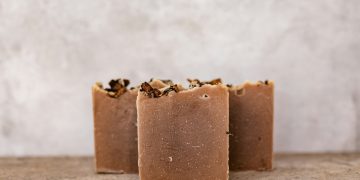If you want your hair to look good, the first step is knowing how to take care of it. Washing your hair at the right time, with the right products and tools, and in a way that isn't bad for your locks is the best way to ensure that your hair stays healthy and shiny. That said, there are many different types of hair—from fine strands to thick manes—so we've put together the following guide on keeping every type healthy and clean.
-
Drink Enough of Water
Most people are unaware that drinking lots of water makes your hair stronger. One of the causes of hair loss is dehydration. Therefore, if you want to experience growth and maintain your hair, you must drink lots of water. You can use the water tracker app by lasta to track your hydration level and know the quantity of water you need to take at a given period.
-
Wash Your Hair As Often As Necessary
How often you should wash your hair depends on what kind of hair you have and what you do with it. For example, if you have curly or straight hair that needs to be oiled or conditioned every day, washing your hair daily will keep it healthy and prevent damage from buildup. On the other hand, if your hair is oily at the roots but dry at the ends (like mine), then washing every three days will be enough to keep things clean and healthy.
-
Shampoo and Condition Your Hair First
I would recommend doing this in the shower instead of at the sink since it can be easier to rinse out the conditioner once you're already standing under running water.
If you want to keep your hair healthy and shiny, make sure you use a good quality conditioner every time that you wash your hair. It's also important to follow up with an appropriate styling product (like hairspray or gel) so that your style stays throughout the day instead of falling flat after just an hour or two!
-
Use the right Products For Your Hair Type
The best thing you can do to keep your hair healthy is to use products that are right for your type and texture. For example, if you have dry hair, use a conditioner or moisturizing shampoos with natural ingredients like coconut oil, jojoba oil, or aloe vera. If your hair is oily and prone to breakage or split ends, try shampooing only once a week with a gentle cleanser or sulfate-free shampoo (sulfates are the detergents used in most shampoos).
You should also use products free of parabens (preservatives), fragrances (which often contain phthalates), and other harmful chemicals like formaldehyde releasers. Look for cruelty-free products as well; many vegan companies will indicate this on their packaging, so it's easy to recognize them at the store.
-
Don't Wash Your Hair Too Often
The average person washes their hair about once a week, but it's best to wash it daily if you have oily hair. If you have dry or normal hair, try washing it every other day. If you have curly hair or prefer to wear your hair down at night (which can cause tangles), then try washing it every three days.
-
Brush Your Scalp And Roots
If you're habitually brushing through your hair before you shower, that's not a good idea. Brushing is meant for your scalp and roots but not for the ends. Brushing your hair when wet and in tangles can cause breakage and damage.
Brush only when necessary.
-
Avoid Tying Wet Hair Up Too Tight in a Bun or Ponytail
Tying wet hair too tight will cause breakage and split ends while making it more prone to tangles, which are annoying and damaging on their own.
It's also important not to put too much tension on the roots when pulling back wet strands (a very common mistake). Not only will this lead to unnecessary knots, but it'll also make your mane look frizzy later on!
-
Washing Too Often Can Make Your Scalp Produce More Oil
Washing your hair too often can cause the scalp to produce more oil, which is why many people with oily hair are advised to wash less frequently. Washing too often can also dry out your hair and make it brittle.
Conclusion
We hope you enjoyed learning about how to take care of your hair. Just remember to wash as often as necessary, and use shampoo and conditioner on all parts of your scalp and hair. If these tips help simplify caring for your locks, we hope they make life a little easier for everyone!

























